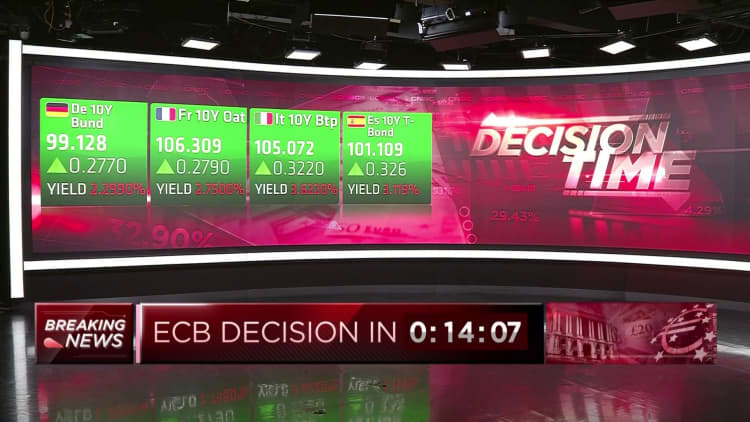The European Central Bank on Thursday lowered its annual inflation forecast, as it confirmed a widely expected hold on interest rates.
Meanwhile, European Central Bank President Christine Lagarde noted that market pricing of interest rate cuts in June is in line with policymakers' expectations.
Staff expectations for inflation in 2024 were updated to an average of 2.3% from 2.7%. Looking ahead, experts expect inflation to reach the European Central Bank's target of 2% in 2025 and then decline to 1.9% in 2026.
At the same time, they updated their 2024 economic growth forecast to 0.6% from 0.8%, as economic activity in the euro zone weathers the current recession. They then expect GDP to expand by 1.5% in 2025 and 1.6% in 2026, slightly weaker than the December forecast.
“We are in the process of reducing inflation and we are making progress,” Lagarde said during a press conference on Thursday.
He added: “We are more confident as a result, but we are not confident enough, and we need more evidence, more data, and we know that this data will come in the next few months. We will know more in April and much more.” in June.”
Policymakers have repeatedly pointed to May as a key date, as wage settlements are scheduled to be released that month.
Lagarde said the ECB would be “strongly focused” on two areas of inflation that could surprise: wage growth and profit margins. There could also be a negative surprise to the outlook if monetary policy weakens demand more than expected or the global economic environment deteriorates unexpectedly, she added.


Expectations 'converging'
The announcement increased market bets on interest rate cuts that will take place this summer, as the euro traded lower against the British pound and bond yields fell.
Market expectations have already shifted to a June cut in recent weeks. The ECB's key interest rate is currently at 4%, up from -0.5% in June 2022, after a series of 10 increases.
Lagarde said on Thursday that market prices “appear to be converging better” with the ECB's view. Policymakers were motivated earlier this year to aggressively back away from market bets on cuts in March or April.
Lagarde also said on Thursday that the ECB would not need to wait until headline inflation reaches its 2% target before making a decision.
Eurozone inflation fell to 2.6% in February from 2.8% in January. However, the core figure, which excludes energy, food, alcohol and tobacco, proved steady at 3.1%.
'Relatively dovish'
The most likely scenario involves interest rate cuts starting in June of 25 basis points per meeting, for a total of 150 basis points or more in total, said Antonio Serpico, senior portfolio manager at Neuberger Berman.
“The numbers were actually very reassuring, and we were not expecting any reduction today,” he told CNBC's Silvia Amaro.
He said, “Today's decision seems relatively pessimistic” given the decline in growth and inflation expectations.
“This means that the ECB Governing Council sees growth as slower and lower than it saw before…and also in terms of headline and core inflation, the new forecasts are certainly weaker than the old forecasts.”
He added that the main variable will be the extent to which core inflation remains stable, driven by the tight labor market.
Core inflation expectations were updated to 2.6% in 2024 from 2.7%, and to 2.1% in 2025 from 2.3%.
